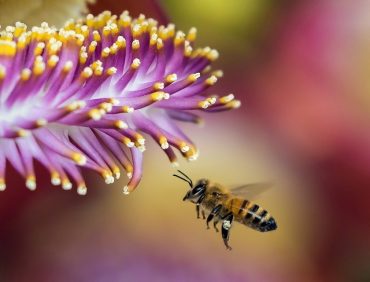

You most probably have heard about the important role honeybees play in the role of pollination on Earth. The bee is vital in the reproduction of plants. Humans depend on plants for food, both to eat and to feed to our livestock. So, when honeybee colonies started collapsing and the number of active bees started to drop, an alarm was sounded.
The honey bees were suffering from what is called colony collapse disorder, or CCD. The colony is moving along fine and it is business as usual. “The bees appear fine in the fall,” says Michael Breed, a honeybee researcher at the University of Colorado at Boulder. “Then by mid-spring they’re simply gone.”
Scientists set out to study what may be responsible for the problem. Among the many theories was that mosquito pest spraying that cities and towns do at night was responsible for killing the bees. A study was undertaken by the LSU AgCenter, the U. S. Department of Agriculture Honey Bee Breeding, Genetics and Physiology Research Laboratory in Baton Rouge and Rodent Control and USDA agricultural engineers in collaboration with area bee keepers. They set out to find if efforts to control mosquito populations was killing the bees as well.
The group tested spraying within the vicinity of a control group of bees. They used the identical sprayer that many towns and cities use to do their spraying. They set up bees groups fifty feet from the sprayer and set the spray level to its highest setting. The bees were unaffected.
Most bee-hives are nowhere near the spray trucks much less just fifty feet away. The group concluded after many tests that mosquito control efforts by cities and town was not responsible for the decline in honey bee populations.
This study doesn’t rule out the possibility that pesticides on crops may be affecting the bee population. It simply addresses mosquito spraying.
The effort to get to the bottom of CCD continues and many people have jumped into the fight. There have been an increase in beekeeping by active and aware people to help keep the bee population sufficient. Studies are continuing to find out exactly what is happening.
